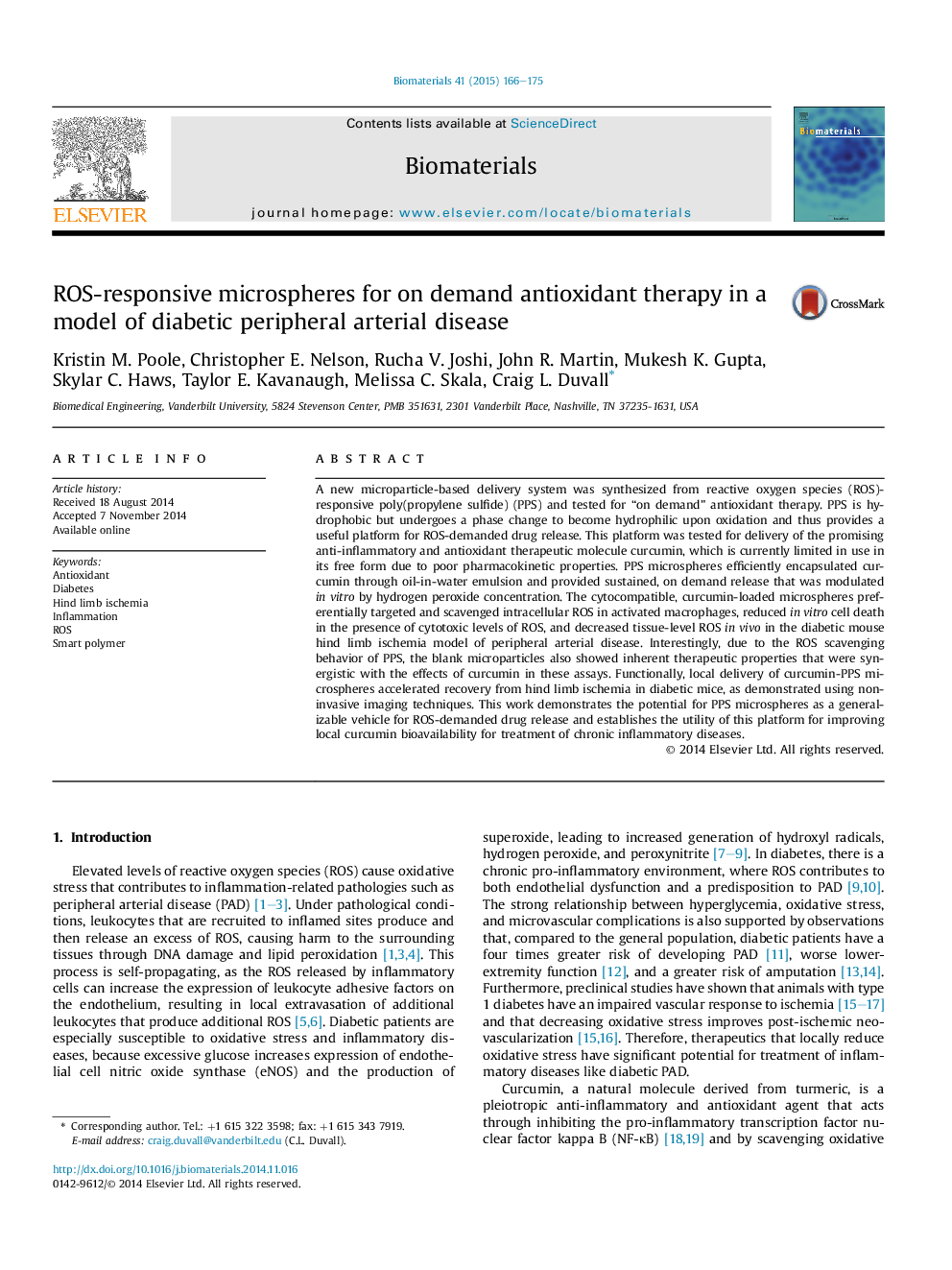| Article ID | Journal | Published Year | Pages | File Type |
|---|---|---|---|---|
| 6486332 | Biomaterials | 2015 | 10 Pages |
Abstract
A new microparticle-based delivery system was synthesized from reactive oxygen species (ROS)-responsive poly(propylene sulfide) (PPS) and tested for “on demand” antioxidant therapy. PPS is hydrophobic but undergoes a phase change to become hydrophilic upon oxidation and thus provides a useful platform for ROS-demanded drug release. This platform was tested for delivery of the promising anti-inflammatory and antioxidant therapeutic molecule curcumin, which is currently limited in use in its free form due to poor pharmacokinetic properties. PPS microspheres efficiently encapsulated curcumin through oil-in-water emulsion and provided sustained, on demand release that was modulated in vitro by hydrogen peroxide concentration. The cytocompatible, curcumin-loaded microspheres preferentially targeted and scavenged intracellular ROS in activated macrophages, reduced in vitro cell death in the presence of cytotoxic levels of ROS, and decreased tissue-level ROS in vivo in the diabetic mouse hind limb ischemia model of peripheral arterial disease. Interestingly, due to the ROS scavenging behavior of PPS, the blank microparticles also showed inherent therapeutic properties that were synergistic with the effects of curcumin in these assays. Functionally, local delivery of curcumin-PPS microspheres accelerated recovery from hind limb ischemia in diabetic mice, as demonstrated using non-invasive imaging techniques. This work demonstrates the potential for PPS microspheres as a generalizable vehicle for ROS-demanded drug release and establishes the utility of this platform for improving local curcumin bioavailability for treatment of chronic inflammatory diseases.
Related Topics
Physical Sciences and Engineering
Chemical Engineering
Bioengineering
Authors
Kristin M. Poole, Christopher E. Nelson, Rucha V. Joshi, John R. Martin, Mukesh K. Gupta, Skylar C. Haws, Taylor E. Kavanaugh, Melissa C. Skala, Craig L. Duvall,
